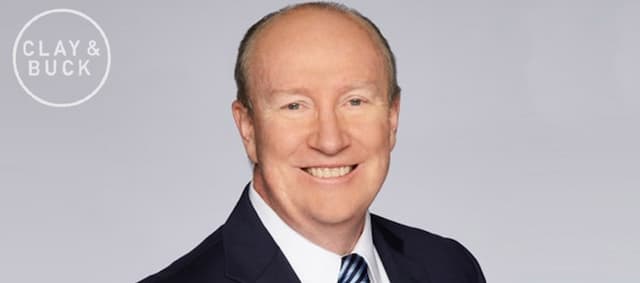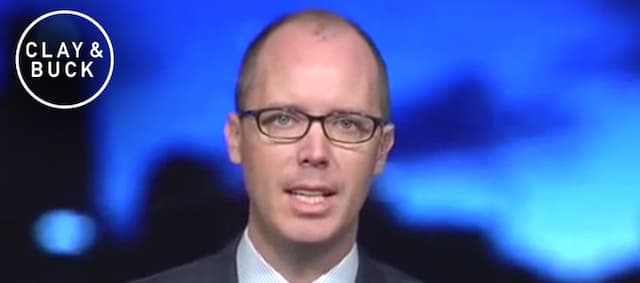The Trump Legacy Could Include the Overturning of Roe
BUCK: We do have today the biggest story by far still are the arguments at the Supreme Court. You have activists who have gathered outside. I think that former Vice President Pence touched upon something that we should spend a little more time on, and that is this is now for the left an issue not just of legality but an issue of culture.
It’s something that they tend to even go so far as to celebrate. Right now, there are women activists gathered on the steps of the Supreme Court who — I’m sure they’re not, I don’t know — are saying they’re taking abortion pills and they’re chanting about how happy they are to always be taking abortion pills whenever they want. That’s the kind of stuff that is on display right now in our nation’s Capitol. Here’s former Vice President Pence trying to speak to this issue.
 PENCE: Today, many on the left believe that it is a moral good that abortion is to be celebrated and encouraged, even as it was on a recent broadcast of Saturday Night Live. It’s not hard to imagine that the day will soon come when the radical left begins counting abortion as a tool for managing population growth as the Chinese Communist Party has done for decades.
PENCE: Today, many on the left believe that it is a moral good that abortion is to be celebrated and encouraged, even as it was on a recent broadcast of Saturday Night Live. It’s not hard to imagine that the day will soon come when the radical left begins counting abortion as a tool for managing population growth as the Chinese Communist Party has done for decades.
BUCK: Clay, that was actually in the origins we discussed of the abortion movement. That was one of the policy justifications for it, and I do think the country… We are gonna talk about this. The country is gonna go into a period here of not just turmoil, but some degree of soul-searching, and there could be massive political implications for this.
On the one hand, we have Biden saying that he wants to ease supply concerns. The polls… I just saw a Trafalgar poll, I think it was, 36% now, most recent one today. So the Biden administration, the Biden regime is crumbling before our very eyes. Obviously, they have not stopped covid. Not good stewards of the economy. The mess in Afghanistan, the wide-open southern border, all these areas.
Then you have this issue, though, that will turn into a massive mobilization tool in advance of the Supreme Court decision, I think, for the left. They’re going to push this as a War on Women issue, and I wonder how much that will be able to detract from their losses particularly among women voters that we saw in Virginia, for example, with the recent election of the governor there.
And after listening to the argument, I believe this could be the case that finally reverses the great injustice of Roe. It may all come down to Amy Barrett
— Josh Hawley (@HawleyMO) December 1, 2021
CLAY: Yeah. It’s impossible to disassociate the political impacts of abortion. I would say there are three main issues here. The moral issues associated with abortion, the legal issues associated with abortion, and the political issues associated with abortion. All three of those at interplay here, and it’s important to note — and we’ll talk to Shannon Bream about this — that this decision will come down right in the midst of the 2022 campaign.
So, when Democratic Party has almost nothing else to rally around, will they be able to mobilize particularly suburban women by threatening them that abortion is going to become illegal? And, by the way, we should mention this. Senator Josh Hawley, who is a former Supreme Court clerk, I thought his take on this was interesting.
“And after listening to the argument,” this is what he tweeted, “I believe this could be the case that finally reverses the great injustice of Roe. It may all come down to Amy Barrett,” which I thought was interesting, him being able to put her in the crosshairs. And then one more thing he said. “Prophecy is always dangerous with any court, but I count 6 votes to reverse in #Dobbs and uphold Mississippi’s law.”
Prophecy is always dangerous with any court, but I count 6 votes to reverse in #Dobbs and uphold Mississippi’s law
— Josh Hawley (@HawleyMO) December 1, 2021
For people who might have missed the opening of the show, I think the most likely outcome is that the Mississippi law is upheld but it has done so within the construct and context of the retrovirus and Planned Parenthood vs. Casey decisions. In other words, instead of overruling them, I think they will modify and continue to incrementally chop away at the foundation of Roe and Casey and allow this Mississippi law to stand.
But this is interesting. Hawley says, “It may all come down to Amy Barrett,” as there may be five votes, because I think you have to presume the chief justice is going to not be in favor of overturning Roe. Amy Coney Barrett may be the fifth vote, and he thinks she is the one that is uncertain.
BUCK: So, in essence, if that comes to pass, Donald Trump’s victory in 2016 and his appointment to the Supreme Court, specifically Amy Coney Barrett, will be what has ended the regime of abortion this year in this country for 50 years. That’s a pretty remarkable legacy for Trump to leave behind after the fact. That would be quite a thing.
Remember in the early days of Trump people said, “Oh, don’t vote for him just for the judges.” Well, first of all, I think that the judges were excellent and that was a major part of the Trump legacy on the good side of things. But beyond that, if it is in fact the case that we have this overturning of Roe — which Josh Hawley, who understands the law well, says it’s very possible. It’s clearly possible.
It’s not a distant possibility. It’s feeling like maybe more of a 50-50 proposition than it ever has before, and it is one more than it ever has been before. So in that circumstance, in that reality, I think you have to wonder, Clay. I think you have to wonder, is it possible that Trump will be the president whose actions, in essence, ended abortion as a constitutional right? Not ended it in every state, but as a constitutional right in America.
CLAY: No, it would be a wild legacy. To your point, Buck, this wouldn’t end abortion. If Roe v. Wade is overturned — I think there’s a huge percentage of people that don’t understand this — it would return the right to determine whether or not abortion is permissible to the states. And a lot of people are already trying on both sides to say, “Oh, this would end abortion forever.”
BUCK: We got a lot of people want to actually weigh in on this, Clay. We got Diane in Utah right now. Diane, welcome to the Clay and Buck show.
CLAY: Partial-birth abortion, yeah.
CALLER: Yeah, partial-birth abortion. I’m not sure people would have supported it at the time. So my question is, “Were there parameters put on that at the time or did the court just decide go the backdoor, do whatever you want?”
 CLAY: Yeah. It’s a good question. Again you have to consider it in the context of what happened with Planned Parenthood v. Casey, which was the first significant case. I think that was 1992. Roe was ’73, if I’m remembering correctly, Buck. The focus here was in many ways on, by the time you got to Casey, the undue burden standard of abortion, right, in 1992, and there was an examination of when is a fetus viable?
CLAY: Yeah. It’s a good question. Again you have to consider it in the context of what happened with Planned Parenthood v. Casey, which was the first significant case. I think that was 1992. Roe was ’73, if I’m remembering correctly, Buck. The focus here was in many ways on, by the time you got to Casey, the undue burden standard of abortion, right, in 1992, and there was an examination of when is a fetus viable?
Right? That’s a big part of this discussion. And really that’s the essence of what Mississippi is doing. They are saying, “You can’t have abortions after 15 weeks,” which is relatively early in a pregnancy. But by the time you get to be 15 weeks — for anybody out there who has gone through having a child, getting the pictures taken inside of the womb — you can see very much of the fetus having developed by 15 weeks.
This goes to the point on the politics of it, Buck, which is also interesting in addition to the legality. People say, “Oh, I support abortion/I don’t support abortion,” whatever your angle might be. But when you start to ask them questions about things such as partial-birth abortion, when you have late-term abortions that are occurring, the number of people that actually are supportive of that is minuscule.
It fades very quickly. So the 15-weeks standard is, I think… If I’m predicting, I think what’s gonna happen is the 15-week standard is going to become permissible. Everybody will then in red states set the 15-week standard, and we’ll see what happens with Texas and other states as they try and continue to chip away at the overall right to an abortion that was found in Roe and reimagined in Casey.
BUCK: All right. Diane, thank you so much for being with us.





